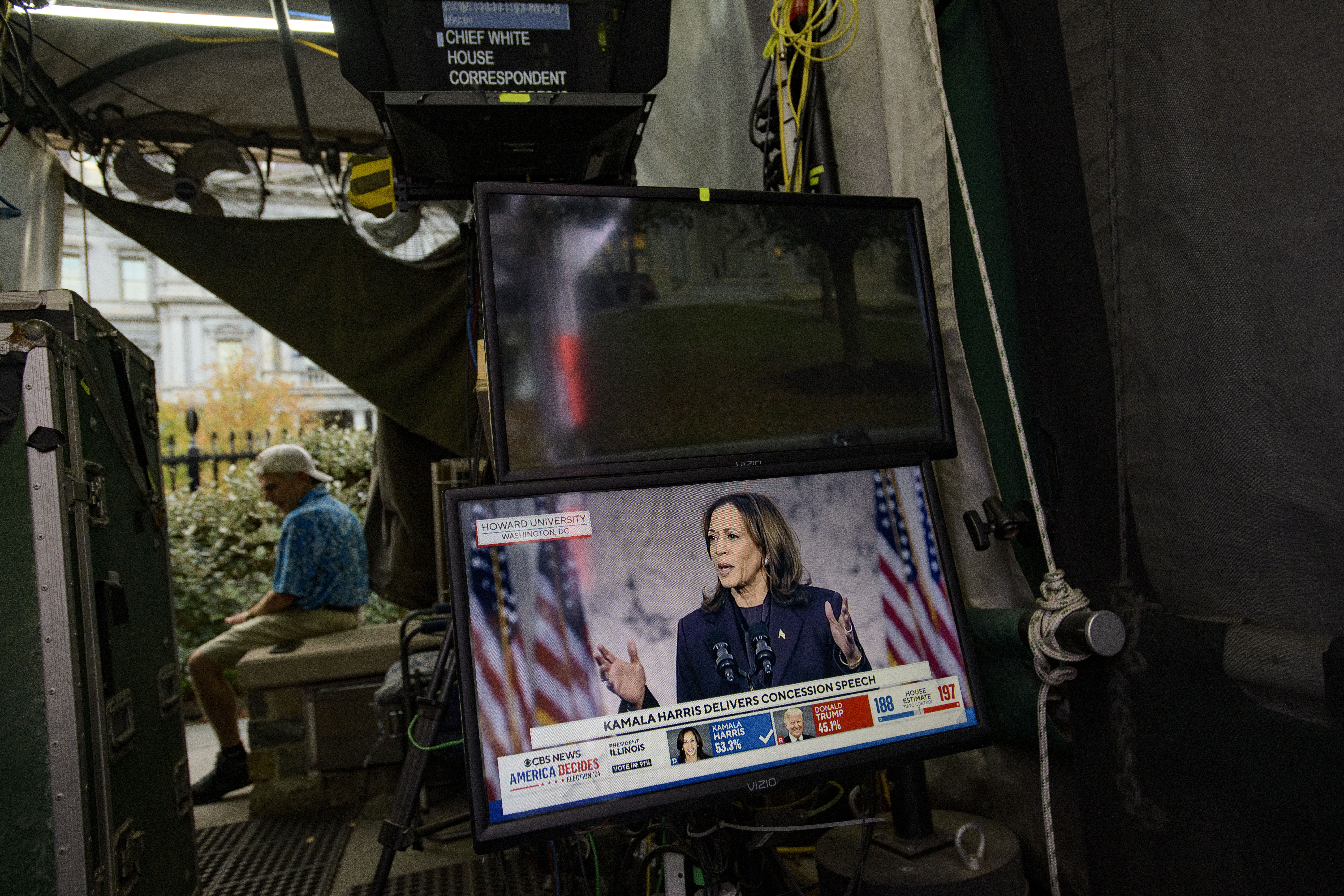Democrats critical of Harris voice their disapproval: ‘These guys didn't get it at all’
Trump shifted numerous regions of the country toward more conservative viewpoints.

Democratic pollster James Zogby repeatedly sent memos to Vice President Kamala Harris’ campaign, highlighting her vulnerabilities related to Gaza. Dean Phillips urged Democrats to support a competitive primary even with President Joe Biden as the nominee. Rep. Marie Gluesenkamp Perez has long advocated for the party to address the concerns of working-class voters.
“These guys didn't get it at all, they were playing to a narrow base of the people they know best,” Zogby remarked, stating he stopped sending warnings about vulnerabilities over the war when he grew weary from the effort and the recipient's lack of response.
Despite the acknowledgement among prominent Democrats that the vice president’s historically brief 107-day campaign faced challenges, the magnitude of the loss has ignited a round of blame-casting that underscores significant ideological divides within the party as it looks for a way forward.
Former Speaker Nancy Pelosi, instrumental in Biden’s decision not to run, mentioned in a New York Times interview that “had the president gotten out sooner, there may have been other candidates in the race.” She had anticipated an open primary but remarked, “because the president endorsed Kamala Harris immediately, that really made it almost impossible.”
Phillips, who contended with Biden in the Democratic primary, told The Washington Post that the outcome was “absolutely” what he had projected. He criticized the party’s failure to promote a competitive primary, believing it would have led to a candidate “perhaps better positioned to win.” “Absolutely. No question, 100 percent,” he affirmed.
Gluesenkamp Perez, a likely candidate to retain her seat in a Republican-leaning Washington district, urged her party to prioritize the working class and expressed her frustrations in a New York Times interview, stating, “It’s a lot easier to look outward, to blame and demonize other people, instead of looking in the mirror and seeing what we can do.”
The Harris campaign did not respond immediately to a request for comment.
Donald Trump’s influence has shifted many regions of the country toward the Republican side, particularly across parts of the Sun Belt and the Blue Wall, resulting in the GOP likely attaining its first popular vote victory in two decades. His appeal extended to lower-income voters and voters of color, undermining demographics that Democrats have traditionally counted on.
In 2016, Trump tapped into longstanding anxieties within the white working class regarding cultural loss and elitism. His campaign was bolstered by Hillary Clinton’s disparaging comments on certain voter groups, which reinforced his narrative. In 2024, Trump and the GOP encapsulated this demographic as “the forgotten men and women of America,” working to attract disaffected young men and non-college-educated Black and Latino voters. He secured one-fifth of Black men and nearly half of Latino men.
“We gotta stop making assumptions about people of color and give them something of substance,” said Mark Longabaugh, a Democratic strategist and former adviser to Sen. Bernie Sanders’ 2016 campaign. He warned that if Democrats fail to do so, they risk allowing Trump and the Republicans to solidify a coalition that would be difficult to challenge.
Longabaugh acknowledged the merits of Harris' campaign but indicated that her loss reflected broader issues for the party. He associated her defeat partly with weak economic messaging in the campaign's final days. While Harris had outlined an extensive economic plan, “A New Way Forward For the Middle Class,” her late-stage messaging shifted toward portraying herself as an opponent to Trump, whom she branded as fascist and a threat to democracy.
“It just was always a head-scratcher to me,” Longabaugh commented. “What exactly were you saying? Most political campaigns are not won in an academic seminar about democracy.”
Exit polls indicated that democracy was a crucial motivator for voters, though this did not solely benefit Harris, as Trump has long depicted the Democratic party as emblematic of an antidemocratic “deep state.” Nationally, the economy and immigration—areas where Trump excelled—were the leading factors drawing voters to the polls, followed by abortion, which remains a significant issue for Democrats.
Another red flag emerged from Arab American and Muslim voters, and the broader Democratic progressive faction, regarding the ongoing conflict in the Middle East. Following mass pro-Palestinian protests at the Democratic National Convention, where demonstrators labeled Harris “Killer Kamala,” her role in the Biden administration was seen as a liability.
While Harris attempted to articulate a stance critical of Israeli Prime Minister Benjamin Netanyahu and empathetic toward Palestinian suffering, Zogby described her position as “overly cautious, rather unimaginative.”
Michigan, home to a substantial Arab American population around 400,000 in Detroit's Wayne County, emerged as a particular disappointment. Harris fell short in the state by around 80,000 votes, garnering approximately 60,000 fewer votes in Wayne County than Biden did in 2020.
“More and more people are deeply troubled by Gaza—parts of the Democratic coalition, the Obama coalition, young people, progressives, Black, Latino, and Asian voters—they’re deeply troubled by Gaza,” Zogby stated.
Jessica Kline for TROIB News
Find more stories on Business, Economy and Finance in TROIB business












